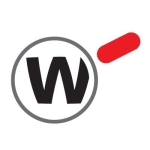What is our primary use case?
I have implemented the solution for customers at about three or four different companies now. I primarily use it for general Cloud Security to protect Azure. In most cases, it has always been about securing Azure.
What is most valuable?
For me, Checkpoint in general is characterized by the ease of day-to-day use, management, log review, and all that. This is a big plus because I can execute these tasks effectively through the Cloud, which is the biggest point for me. It is a significant improvement over Azure's security features, providing enhanced security when Checkpoint is implemented. This is especially beneficial nowadays, as businesses are working with fewer people who need to accomplish more tasks.
What needs improvement?
In my experience, the failover times are a bit poor during an HA failover in the Cloud. However, this also depends on API calls in Azure, so there is not much I can do there. If there is something I could improve, it would be this aspect.
For how long have I used the solution?
I would say that I have used Network Security for about two years.
What was my experience with deployment of the solution?
The first few setups are always a bit uncertain, like wondering what is going to happen. The documentation is great, but the problem with Cloud technologies is that it changes all the time, leading to outdated documentation. It can be a bit challenging in the beginning, but once I get used to it, the process is acceptable.
What do I think about the stability of the solution?
The stability is good, apart from the failover I mentioned before, which takes a bit of time. Again, it is not really Checkpoint's fault; it is just due to Cloud architecture. Overall, stability is good, and upgrades are proceeding well.
What do I think about the scalability of the solution?
Scalability offers two solutions: the gateway and the load balancer setup. The load balancer setup is fantastic. If I need anything, it spins up or spins down and works smoothly. When I adopted it around three years ago, I deployed clusters in the Cloud with two firewalls in HA, but the failover was not ideal. Depending on the scenario, I need to choose the right solution.
How are customer service and support?
Technical support has greatly improved over the last couple of years. It used to be less effective, but now it is in a good state. Also, interactions with salespeople from Checkpoint are going well. I have talked with Palo Alto support as well, and Checkpoint is way better.
How would you rate customer service and support?
Which solution did I use previously and why did I switch?
I just started at the company I am working for now, but my previous customer used Palo Alto. They have the same products, of course, but the usability is not the same. It is stable and good, but the usability is not equivalent.
What about the implementation team?
I use multiple approaches. First, I create an architectural design and check with their Cloud team to see their implementation of their environment. Depending on that, I proceed accordingly. It is really customer-based.
What was our ROI?
For us, it is not really applicable since we sell it and that is the end of it. However, the feedback from customers has been positive. It performs well, effectively doing its job without slowing down and stopping threats. I think the customer is also receiving a significant return on investment from the solution.
Which other solutions did I evaluate?
The most significant advantage for a day-to-day user like me is the logs. In Palo Alto, I need to manage brackets and everything, and issues arise if something is spaced incorrectly. In Checkpoint, I can input whatever I need and get the required results. This is a major win in troubleshooting. Logging is okay on both platforms, but if I know exactly what to type in Palo Alto, it is manageable. However, they are quite similar without too big a difference. For email security, Checkpoint offers a big advantage, but that is unrelated to Network Security.
What other advice do I have?
I would give it a solid eight. This is quite a good score in my opinion. Absolutely. I rate the overall solution an 8 on a scale of 1 to 10.
Which deployment model are you using for this solution?
I am using a Public Cloud deployment model.
If public cloud, private cloud, or hybrid cloud, which cloud provider do you use?
I use Microsoft Azure as the cloud provider.
Disclosure: My company does not have a business relationship with this vendor other than being a customer.























